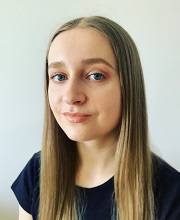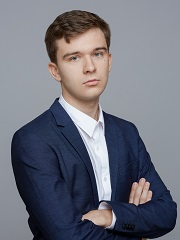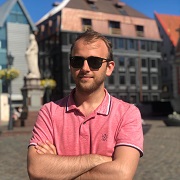
About the programme
| Lenght of studies | 2 years / 3 years part-time | Language | English |
| Scope of studies | 120 ECTS credits | Tuition fee per year | 6000€ |
| Qualification awarded | Master in Computing Sciences | Start of studies | 01 September |
| Application period | 1 November – 1 May* / 1 July** | Application deadline | 1 May * / 1 July** |
* For applicants from non-EU/EFTA countries
** For applicants who do not need a Lithuanian visa and non-EU/EFTA applicants, if there is a Lithuanian embassy in their home country
The purpose of the programme is to prepare high qualification software engineers that can carry out research independently; to lead software development, maintenance and process improvement projects; to apply their knowledge in different application areas; to make decisions under conditions of limited information, and logically, unambiguously and clearly argue them among specialists and non-specialists.
Why this programme?
- Graduates of the programme acquire knowledge in technologies and management, and abilities to lead projects of software development, maintenance and process improvement.
- Study programme combines a practical orientation with a developing ability to conduct research work.
What's after?
- A graduate is ready to work as a Project Manager in Information Technologies, as a Manager of software process improvement; besides, as an Analyst, Designer, Programmer, or Researcher in private and public sectors in Lithuania or abroad.
- A graduate can also continue studies in Computer Science, Software Engineering, Information Systems, and Information Technology Doctor’s degree programmes.
Programme specific requirements
- At least first level studies leading with bachelor diploma are required. The general criterion for admission is to pass an entry exam covering the main topics of the Informatics bachelor degree study program.
- It is highly recommended that applicants have a degree in informatics, mathematics, physical sciences, life sciences, engineering, or technology.
- English language proficiency: the level not lower than B2 (following the Common Framework of Reference for Language approved by the Council of Europe).
- Assessment of motivation and entrance examination is held by electronic means remotely.
- Foreigners from non-EU/EFTA countries are required to pass the OMPT-E exam with a score of at least 70%. The Admissions Committee evaluates the qualifications of applicants and invites them to a motivational interview only after receiving the OMPT-E exam results (with a score above 70%).
The Entrance Exam Topics to Software Engineering master study programme.
In addition, all applicants have to fulfil general admission requirements.
Programme structure
The full-time programme has the following structure:
|
Course unit title |
ECTS credits |
|
I YEAR |
60 |
|
SEMESTER 1 |
30 |
|
Compulsory courses |
30 |
|
Requirements Engineering |
5 |
|
Project Management |
5 |
|
Software Systems Architecture and Design |
10 |
|
Parallel and Distributed Computing |
5 |
|
Master’s Thesis – Research Plan |
5 |
|
SEMESTER 2 |
30 |
|
Compulsory courses |
20 |
|
Software Engineering Models and Methods |
10 |
|
Master’s Thesis – Literature Review |
10 |
|
Optional courses* |
10 |
|
User Experience Engineering |
5 |
|
Enterprise Architecture Frameworks |
5 |
|
Software Quality |
5 |
|
Information Security |
5 |
| Randomized Algorithms | 5 |
| Visualization of Multidimensional Data | 5 |
|
II YEAR |
60 |
|
SEMESTER 3 |
30 |
|
Compulsory courses |
20 |
|
Cyber security technologies |
5 |
|
Master’s Thesis – Key Results |
15 |
|
Optional courses* |
10 |
|
Software Systems Testing and Configuration Management |
5 |
|
Electronic Signature Infrastructure and Electronic Documents |
5 |
| Methods of Cryptography | 5 |
| Object Databases | 5 |
| Heuristic Algorithms for NP-complete Problems | 5 |
| Programming in Cloud Computing | 5 |
| Distributed Systems | 5 |
| Digital crime investigations | 5 |
|
SEMESTER 4 |
30 |
|
Compulsory courses |
30 |
|
Master’s Thesis |
20 |
| Software Process Assessment and Improvement | 5 |
| Leadership | 5 |
*The supply of elective course might vary depending on availability.
The part-time programme has the following structure:
|
Course unit title |
ECTS credits |
|
SEMESTER 1 |
20 |
|
Compulsory units |
20 |
|
Software Systems Architecture and Design |
10 |
|
Project Management |
5 |
|
Requirements Engineering |
5 |
|
SEMESTER 2 |
20 |
|
Compulsory units |
10 |
|
Software Engineering Models and Methods |
10 |
| Optional units* | 10 |
| User Experience Engineering | 5 |
| Enterprise Architecture Frameworks | 5 |
| Software Quality | 5 |
| Information Security | 5 |
| Randomized Algorithms | 5 |
| Visualization of Multidimensional Data | 5 |
|
SEMESTER 3 |
20 |
|
Compulsory units |
15 |
|
Master’s Thesis – Research Plan |
5 |
|
Parallel and Distributed Computing |
5 |
| Cyber security technologies | 5 |
| Optional units* | 5 |
| Software Testing and Configuration Management | 5 |
| Electronic Signature Infrastructure and Electronic Documents | 5 |
| Methods of Cryptography | 5 |
| Object Databases | 5 |
| Heuristic Algorithms for NP-complete Problems | 5 |
| Programming in Cloud Computing | 5 |
| Distributed Systems | 5 |
| Digital crime investigations | 5 |
|
SEMESTER 4 |
20 |
|
Compulsory units |
20 |
|
Master’s Thesis – Literature Review |
10 |
| Software Process Assessment and Improvement | 5 |
| Leadership | 5 |
|
SEMESTER 5 |
20 |
|
Compulsory units |
15 |
|
Master’s Thesis – Key Results |
10 |
|
Optional units* |
5 |
|
Software Testing and Configuration Management |
5 |
|
Electronic Signature Infrastructure and Electronic Documents |
5 |
|
Methods of Cryptography |
5 |
|
Object Databases |
5 |
|
Heuristic Algorithms for NP-complete Problems |
5 |
| Programming in Cloud Computing | 5 |
| Distributed Systems | 5 |
| Digital crime investigations | 5 |
|
SEMESTER 6 |
20 |
|
Compulsory units |
20 |
|
Master’s Thesis |
20 |
*The supply of elective course might vary depending on availability.
Contacts
Do you have any questions? Contact:
- Email:
This email address is being protected from spambots. You need JavaScript enabled to view it. - Phone: +370 5 219 5027
Study Programme Committee
Head of the Study Programme Committee - Assoc. Prof. Dr. Karolis Petrauskas
- Prof. Dr. (HP) Romas Baronas;
- Assoc. Prof. Dr. Kristina Lapin;
- Assoc. Prof. Dr. Rūta Levulienė;
- Dr. Audronė Lupeikinė;
- Dr. Vytautas Ašeris, Social Partner, „Danske bank“;
- Students' Representative.
Ask a student
Ask a master student!
 |
Neda Zalieskaitė | I course | |
|
While studying abroad, I realized that I was attracted to logic, improving the quality of code, finding the best solutions to solve a specific real-world problem with the help of IT methodology. I started working in this field, and I was interested in it. After graduating, I knew exactly that I would study the software systems study programm, and I had no regrets about my decision. New architectural knowledge helps to perform your work in a more versatile way. Quality work = happy customers. This is the most important thing for a programmer. |
|||
 |
Paulius Milmantas |
I course | |
|
|
|||
 |
Irmantas Ivanauskas |
II course |
|
|
When I started working in IT, I saw that a number of things I learned during my bachelor's degree in software systems had to be put into practice. Seeing these benefits, I decided to extend my studies and pursue a master’s degree in the same field of study. During my master's studies, I learned more about the program development process and architectural solutions and broadened my horizons with technologies I had no experience yet. I believe these things will help me pursue further career goals. |
|||

I chose this area of the master’s program because it provides a broad range of theoretical and practical knowledge. Studying offers many opportunities in the IT job - you can become not only a programmer, systems analyst but also a project manager. The nature of the studies is also favorable - one selected thesis must be written throughout the year. By choosing an interesting field of work, you can do a lot and learn a lot in a few years. The knowledge acquired during the studies is valuable, and the opportunity to carry out research work or improve the method further motivates to achieve the set goals.